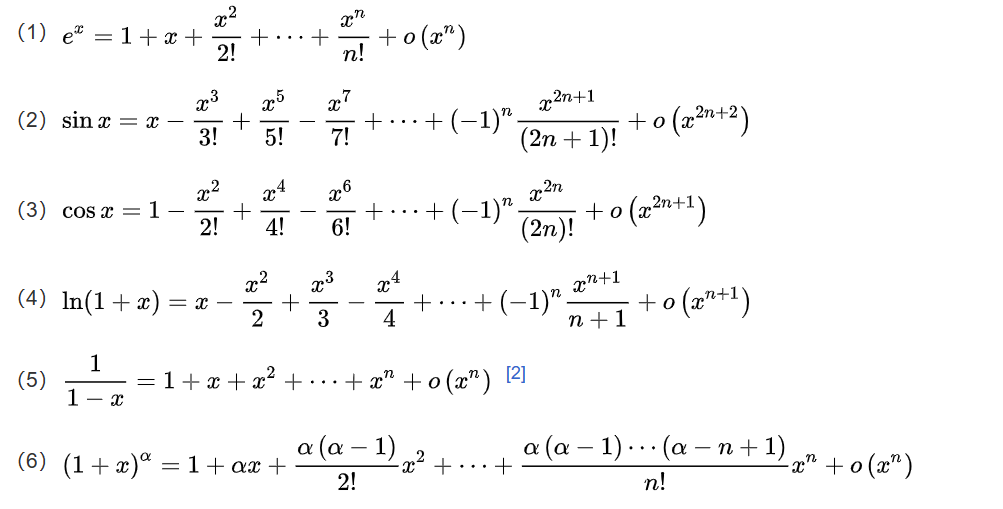The trial formuala for polynomials in a real variable x
p[a_List,x_Symbol,x0_ ] := a . (x - x0) ^ Range[0,Length[a]
yields
a[[m]] == 1/m! D[p[a,x,x0,n],{x,m}] /.{x:>x0}] for all m
because the m differentiation steps xield a factor m(m-1)...1 == m!
All other summands vanish at x==x0 or disappear by differentiation of constants
D[ k(k1)... 1 a_k,x}==0
the nonzeroes yield zero at x=x0
So one tries polynomials of any order m as approximation to a function f
S[f_,x_,x0_,m_]= Sum[1/n! D[f[x],{x,n}]/:x>x0 (x-x0)^n, {n,0,m}]
If these finite sums approximate the function as m->oo, that means
Abs[f[x]-S[f,x,x0,m] ] < some positve number c for all m > a certain number M
then this series is the new definition of f in some interval around x0.
There is a caveat: There exists known cases, where sum may converges but does not appriximate the function f in an open interval around x0.
So its a guess only and needs a proof of convergency.
That is the really difficult and constructive point of modern analysis after Euler, that ended the euclidean mathematics of equations and jump started the search for convergence criteria in function spaces: How to check convergency of series of finite approximations, if there exists no alternative way to find the value of an object at any point.
Example: By geometry we now that Cos[0]==1, cos[pi/2]==0. Show that
1 == Sum[-(-1)^n (\[Pi]/2)^(2 n)/(2 n)!, {n, 1, \[Infinity]}]


SeriesandSeriesCoefficient? $\endgroup$